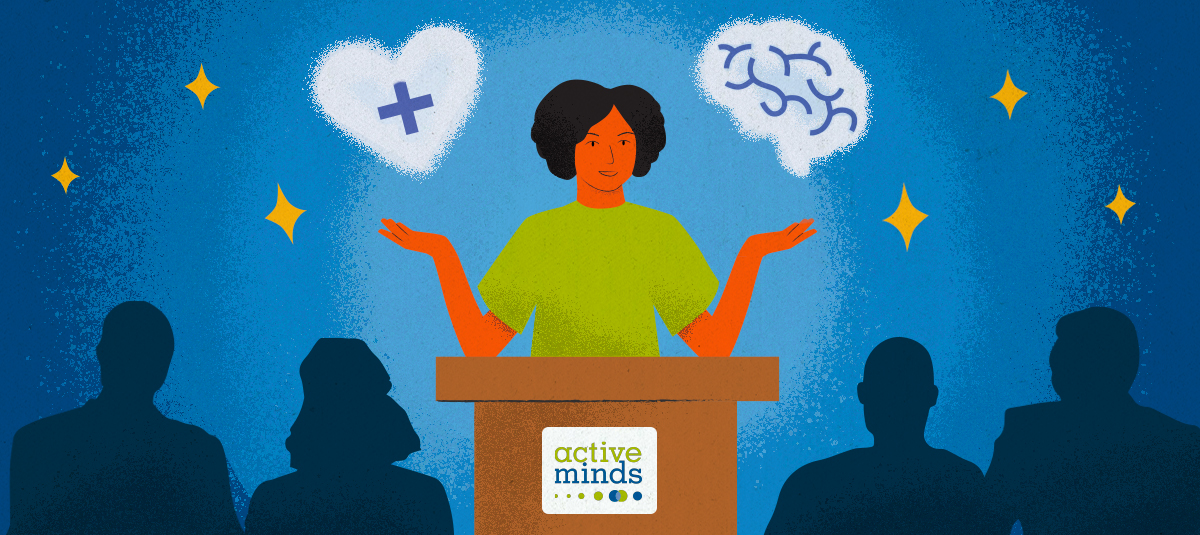I was fourteen years old when I was introduced to the space of mental health advocacy. At this time, I began training to become a hotline listener at Teen Line, a peer crisis line in Los Angeles. I was fascinated by this organization that not only served youth but actively centered their engagement. After all, youth are often quieted and discredited in the mental health space despite youth-led advocacy and peer support being necessities in erasing taboos and improving the current landscape.
Teen Line broadened my understanding of advocacy, centralizing young people at the front lines, and transformed how I viewed mental health support. Without this psychoeducational and stigma-reducing program, I would have never pursued professional help for my own mental health or a professional career in mental health. Having worked with many phenomenal mental health organizations, educational spaces, and legislative initiatives over the years, I have found that speaking openly about mental illness is not restricting or shameful but instead helps to erase the stigma about mental health that has persisted for generations.
Youth are intrinsically motivated to be youth mental health advocates because we are the ones directly experiencing the youth mental health crisis. We are incentivized to learn and advocate because we care for our own well-being and the well-being of our loved ones. At fourteen, I came to the mental health space with a deep-rooted passion for people, specifically, understanding people without taking on a “savior” or problem-solving role. My heart has been continuously postured towards advocacy from a human-centered approach ever since. I did not know at fourteen that I would be nineteen years old, holding space representing youth at the nation’s first Youth Mental Health Youth Action Forum at the White House. I speak openly about mental health among organizations, schools, lawmakers, and loved ones (while ensuring compassionate, sensitive, and proper language) because I understand how vulnerability breeds vulnerability.
This openness is a prevalent theme among the Gen Z community, starkly contrasted with previous generations when discussing mental health. Older generations have much deconstruction to do as they have more years of misconceptions and taboos around mental health to unlearn. Gen Z is extremely receptive to discussing mental health, a concept I have witnessed during my almost seven years in youth mental health and suicide prevention work. When a topic is stigmatized and harmfully marked by silence throughout history, there comes a point where society can no longer ignore it. Furthermore, Gen Z is more socially oriented and focused on systemic activism paired with individual work in the mental health space.
Youth mental health advocacy is unparalleled because:
- Mental health advocacy counteracts barriers to help-seeking.
- Mental health advocacy creates tangible pathways for youth in social impact and career trajectories to become empowered and equipped to support themselves, support others, and better the future.
- Advocating for changes in mental health legislation allows systemic and underlying issues to be comprehensively addressed rather than solely treating symptoms of a larger societal experience.
However, it is not enough for Gen Z to share and reach out to older generations. Older generations are responsible for creating collaborative opportunities for youth to be at the forefront of work. Young people are hurting. This should not be stated in an overly alarmist or fatalistic way but in a real one. It can feel helpless attempting to produce hope while reconciling the overarching state of mental health with personal experiences. I believe in validating this reality but am boundlessly prompted towards channeling this care for the greater good. Caring hurts and can be a burden, but I think this burden is a form of strength that can sustain our work and provide us with a “why” as we navigate the complexities of life.
I have experienced many ways in which advocacy has been a protective factor in my mental health. Often, individuals relegate the mental health field to one that lacks hope, but I fervently posit that it is perhaps the space where I have seen, felt, and experienced hope the most. I see hope when legislation around mental health education, treatment access, and crisis services is improved. I see hope when I see cultural stigmas and mental health taboos broken down in my Middle Eastern family, where they become more receptive to asking for help. I see hope when individuals across campus ask me about my Active Minds Chapter on campus and how they can get involved.
Being a mental health advocate is a title I embrace with gratitude and care. It pushes me to be a perpetual learner and active agent in my interactions, community, and the larger world. Humanity and unity must be prioritized as central for current and future mental health efforts. We cannot dismiss the personhood of mental health, the emotionality of mental health, and the stigmas, prejudices, and discrimination enacted upon those experiencing mental health issues.




